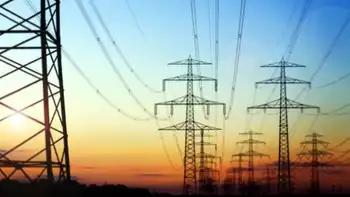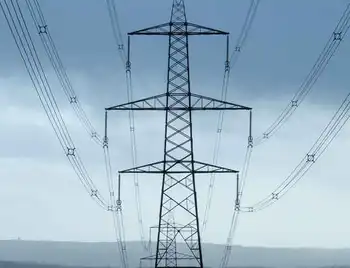Ontario closes 4 more coal units
By Toronto Star
CSA Z463 Electrical Maintenance
Our customized live online or in‑person group training can be delivered to your staff at your location.

- Live Online
- 6 hours Instructor-led
- Group Training Available
Speaking from the Ontario Lung Association headquarters in Toronto, Energy Minister Brad Duguid said two of eight coal-fired units at the Nanticoke station and two of four at the Lambton plant have closed. Shutting them down is the pollution-clearing equivalent of removing up to 2 million cars from the road.
The Ontario government hopes to phase out all coal-fired plants by 2014, replacing that capacity with wind power and other clean energy sources.
“By closing these units down four years ahead of schedule, we’ll actually save about $200 million between now and 2014,” Duguid said. About 200 jobs will be lost.
The Liberals have been criticized for allowing energy costs to soar due to time-of-use rates, an 8 percentage point addition to hydro bills with the new HST and its spending of billions of dollars on green energy pursuits.
“Closing down these four units is a symbol to all Ontarians we are serious about doing this,” Duguid said.
“We will be one of the few jurisdictions in the world to have accomplished this and the result will be cleaner air for all Ontarians.”
By 2014, 19 coal units at five Ontario Power Generation plants will have stopped burning coal as fuel, according to the energy ministry. Of the 19, eight have already shut down, including four units at MississaugaÂ’s Lakeview Generating Station, two at Nanticoke Generating Station near Simcoe and two at the Lambton Generating Station outside Sarnia.
Environmental groups and doctors praised the move, saying pollution spewed by coal-fired stations is partially responsible for certain lung diseases and asthma problems in children.
No other jurisdiction is going as far as Ontario to help clean the air, said Gideon Forman, executive director of Canadian Association of Physicians for the Environment.
“This is a huge step. It has North American-wide implications,” he said. “When they close all the coal plants in 2014, it will be the largest single green house gas reduction project in North America.”
Coal plants produce carcinogens, smog, greenhouse gases and acid rain, Forman said, not to mention that the pollution causes 120,000 illnesses a year in Ontario alone.
“The health costs are about $3 billion a year in Ontario. As we phase out coal, we’ll see savings,” he told the Star.
There is a lot of “squawking” from opposition parties about renewable energy but the reality is that to get rid of coal improves the health of Ontarians, said Rick Smith, the executive director of Environmental Defence.
The NDP and Progressive Conservatives are being “disingenuous with their arguments about costs,” Smith said. Factor in the human cost and renewable energy is a bargain, he said.
Conservative MPP Steve Clark Leeds-Grenville said everyone agrees the environment is important but demand for energy has fallen with the loss of 300,000 provincial manufacturing jobs.
“That is the real reason behind the coal closures,” Clark said.
People are angry about rising hydro costs, he added. “Over the next five years people are going to be paying another over $700 a year more for energy.”
NDP MPP Peter Tabuns Toronto-Danforth pointed out the Liberals promised in 2003 to close coal plants by 2007.
“If they would have listened to advice of environmentalists and the NDP a number of years ago, they’d be on the verge of shutting down Lambton and Nanticoke now.”
After Duguid made the good news announcement, noted U.S. environmental crusader Erin Brockovich addressed a crowd in Oakville regarding the controversial plan to build a 900-megawatt natural gas power plant close to 16 schools and 11,000 homes.
When asked by reporters if the Liberals have changed their mind on the location of the plant, Duguid said he is “continuing to look at options.”
“We are continuing to listen to the views of those residents and we’ll continue to do that as we take a look at the future of that particular plant,” he said. “We are always a government that is going to listen to Ontarians.”











